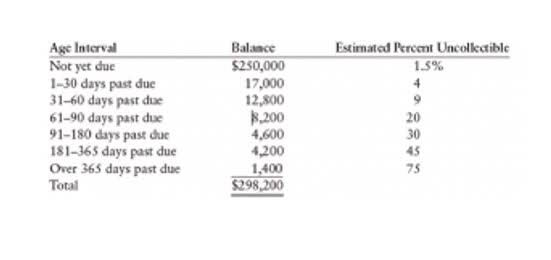
These accountants make sure that a company’s accounting follows the Generally Accepted Accounting Principles, which I will describe below. These accountants also work with cash flow statements and balance sheets. An income statement, also referred to as a profit and loss statement, is a financial document I use to see how much my business has earned and spent during a specific accounting period.
- You don’t want to be in a situation where you have to pay more income tax than is normally required by the Internal Revenue Service (IRS).
- This part of accounting — tax obligation and collection — is particularly tedious.
- The accrual method recognizes revenue and expenses on the day the transaction takes place, regardless of whether or not it’s been received or paid.
- Accounting principles are the rules and guidelines that companies and other bodies must follow when reporting financial data.
- This way you can stay net positive even if your sales aren’t increasing.
Open a business bank account linked to all points of sale.
Their purpose is to provide consistent information to investors, creditors, regulators, and tax authorities. For example, if my business earned $50,000 in revenue over a quarter but had $30,000 in expenses, my income statement would show a net profit of $20,000. This document is essential for understanding my company’s financial performance and making decisions about future operations. Accounting is the process of keeping track of all financial transactions within a business, such as any money coming in and money going out. It’s not only important for businesses in terms of record keeping and general business management, but also for legal reasons and tax purposes.
Gross Revenue vs. Net Revenue: An Explainer
If the entries aren’t balanced, the accountant knows there must be a mistake somewhere in the general ledger. Some accounting software is considered better for small businesses such as QuickBooks, Quicken, FreshBooks, Xero, or Sage 50. Members of financial accounting can carry several different professional designations. Some scholars have argued that the advent of double-entry accounting practices during that time provided a springboard for the rise of commerce and capitalism.
- Follow along step-by-step and we’ll explain the most important accounting topics in a more intuitive away.
- Luca Pacioli is considered “The Father of Accounting and Bookkeeping” due to his contributions to the development of accounting as a profession.
- Because of this, many publicly traded companies report both GAAP and non-GAAP income.
- Consistency refers to the ability to make relevant comparisons within the same company over a period of time.
- Even though it won’t actually perform the work until the next month, the cash method calls for revenue to be recognized when cash is received.
- Accounting principles are rules and guidelines that companies must abide by when reporting financial data.
Why Is Accounting Important for Investors?
This makes it easier for investors to analyze and extract useful information from the company’s financial statements, including trend data over a period of time. It also facilitates the comparison of financial information across different companies. Accounting principles are the rules and guidelines that companies and other bodies must follow when reporting financial data.
In my opinion, understanding how to manage your money effectively can make the difference between success and failure. Accounting helps a business understand its financial position to be able to make informed decisions and manage risks. In accounting, you’ll come across certain titles which appear to bear similar duties but actually have unique job descriptions.

Free Financial Planning Templates
Revenue is recorded when it is earned (when a bill is sent), not when it actually arrives (when the bill is paid). Accrual accounting recognizes the impact of a transaction over a period of time. The most notable principles include the revenue recognition principle, matching principle, materiality principle, and consistency principle. Completeness is ensured by the materiality principle, as all material transactions should be accounted for in the financial statements. Consistency refers to a company’s use of accounting principles over time. Financial accounting focuses on the value of the company’s assets and liabilities.
Income Statement
Financial accounting refers to the processes used to generate interim and annual financial statements. The results of all financial transactions that occur during an accounting period are summarized in the balance sheet, income statement, and cash flow statement. The financial statements of most companies are audited annually by an external CPA firm. An income statement, also known as a “profit and loss statement,” reports a company’s operating activity during a specific period of time. Usually issued on a monthly, a quarterly, or an annual basis, the income statement lists revenue, expenses, and net income of a company for a given period.

Will you use bookkeeping services in sacramento software or make an accountant your first hire? This sounds straightforward, but accounting can impact both internal and external opinions. Because of this, many publicly traded companies report both GAAP and non-GAAP income.
- To illustrate double-entry accounting, imagine a business sending an invoice to one of its clients.
- While financial accountants often use one set of rules to report the financial position of a company, tax accountants often use a different set of rules.
- The primary output of the financial accounting system is the annual financial statement.
- Work opportunities for a financial accountant can be found in both the public and private sectors.
- Most business owners opt for small-business accounting software to help automate the process and reduce the likelihood of error.
- Accounting is a back-office function where employees may not directly interface with customers, product developers, or manufacturing.
Small or private companies may also use financial accounting, but they often operate with different reporting requirements. Financial statements generated through financial accounting are used by many parties outside of a company, including lenders, government agencies, auditors, insurance agencies, and investors. For example, imagine a company receives a $1,000 payment for a consulting job to be completed next month.







No Response to "Экономика Нью-Йорка Википедия"